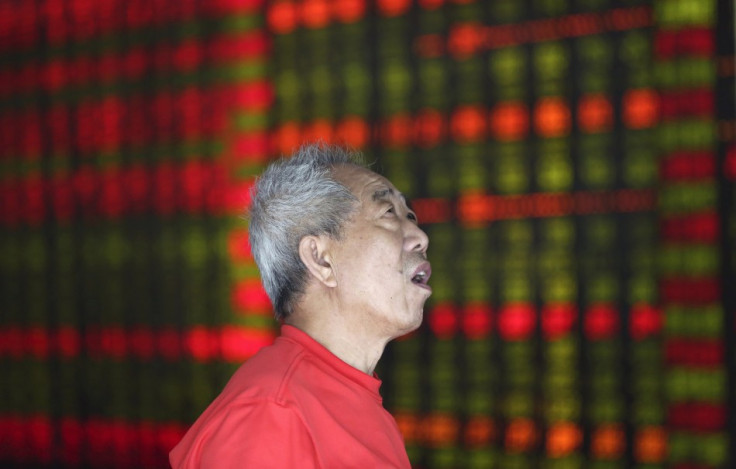Asian Markets Mixed Following US Government Shutdown

Asian markets witnessed mixed trade on 1 October, with most markets reversing early gains, as traders digested news that the US government would shut down indefinitely.
The Japanese Nikkei finished 0.20% higher or 28.92 points at 14,484.72
Australia's S&P/ASX finished 0.22% lower or 11.40 points at 5,206.30
South Korea's Kospi finished 0.10% higher or 1.91 points at 1,998.87.
India's BSE Sensex was trading 0.54% higher or 104.24 points to 19,484.01.
Financial markets in China will remain closed till 7 October for the Golden Week holidays.
The US government will partially shut down 1 October onwards, after a 30 September deadline to approve a budget for the 2014 financial year passed, despite a last-hour appeal by President Barack Obama.
The Republicans, who have a majority in the House of Representatives, were firm on their view that the House should delay Obama's healthcare reforms - the Affordable Care Act - in order to pass the budget.
Their proposal was rejected by US Senate Democrats who said it was too late to avert a shutdown.
A bipartisan committee was called almost one hour before midnight but it failed to reach an agreement.
Subsequently, the budget office at the White House began notifying federal agencies to begin a shutdown. Just before midnight, Budget Director Sylvia Burwell issued a directive to federal agencies to "execute plans for an orderly shutdown."
Uncertainty surrounds the length of the shutdown. US politicians are expected to continue negotiating a funding measure later today.
The partial shutdown would cost the US at least $300m a day in lost economic output at the outset, consultancy firm IHS estimated.
If the shutdown lasts for a week, the American economy would lose about $10bn (£6.19bn, €7.4bn) according to the White House.
"Risk assets have been sold off in the last few days ahead of the actual news of the shutdown," Tim Condon, chief economist for Asia at ING in Singapore told Reuters. "It's already priced in."
"The consensus view, which I share, is that the government can remain shut down for a little while. They will come back and revisit ahead of the debt ceiling debate. I think for now there will be a cooling-off period," Condon added.
In Japan, Prime Minister Shinzo Abe announced that the national sales tax would increase to 8%, from 5% at present, next April. Market players welcomed Abe's decision as they now expect a massive $50bn stimulus package that can tone down the impact of the tax hike.
In South Korea, central bank government data revealed that the country's September exports fell 1.5% from a year ago.
Elsewhere, in Australia, the country's central bank left its official interest rate at a record low 2.5 %p for the second successive month. "The easing in monetary policy since late 2011 has supported interest-sensitive spending and asset values. The full effects of these decisions are still coming through, and will be for a while yet," RBA Governor Glenn Stevens said in a statement.
In India, the country's current account deficit (CAD) grew less than expected in the April-June quarter. The CAD for the three months to June was $21.8bn.
Five economists had forecast that the deficit would rise to $23bn-$25bn, reported Reuters.
Wall Street Down
On Wall Street, indices ended lower on 30 September against the backdrop of an imminent shut down of the US government.
The Dow finished 128.57 points lower at 15,129.67. The S&P 500 ended 10.20 points lower at 1,681.55, while the Nasdaq closed 10.12 points lower at 3,771.48.
All key S&P sectors closed in the red, pulled down by energy and consumer staples.
"For the markets, a state of exceptional uncertainty will persist for at least another month, possibly until late December," the Washington-based Potomac Research Group said in a note to clients.
Company Stock Movements
In Tokyo, index heavyweight Softbank added 2.5%. Battery manufacturer GS Yuasa and textile producer Unitika added about 4 % each.
In Mumbai, Tata Communications added 4.3% on news that South Africa's Vodacom Group looking to acquire Tata's local unit, Neotel. The deal could be worth $590m.
Maruti Suzuki India, the country's biggest car maker by volume, added 3.1% following higher-than-expected sales in the month of September.
Apollo Tyres tanked 8.9% on concerns surrounding the firm's debt burden, after it completes the acquisition of US-based Cooper Tire and Rubber for $2.5bn.
Hindustan Unilever lost 1.2% after parent Unilever warned that a slowdown in its emerging markets had gathered speed in the July-September quarter.
In Sydney, retailers Harvey Norman and David Jones added 1% each on news that Australian retails sales rose 0.4% in the month of August, beating expectations of a 0.3% increase.
ROC Oil and Karoon Gas dropped over 4% after Brent crude oil prices slid below $108 per barrel.
In Seoul, index heavyweight Samsung Electronics added 1% while automaker Hyundai Motor gained 2% even as the Japanese yen weakened.
© Copyright IBTimes 2025. All rights reserved.






















